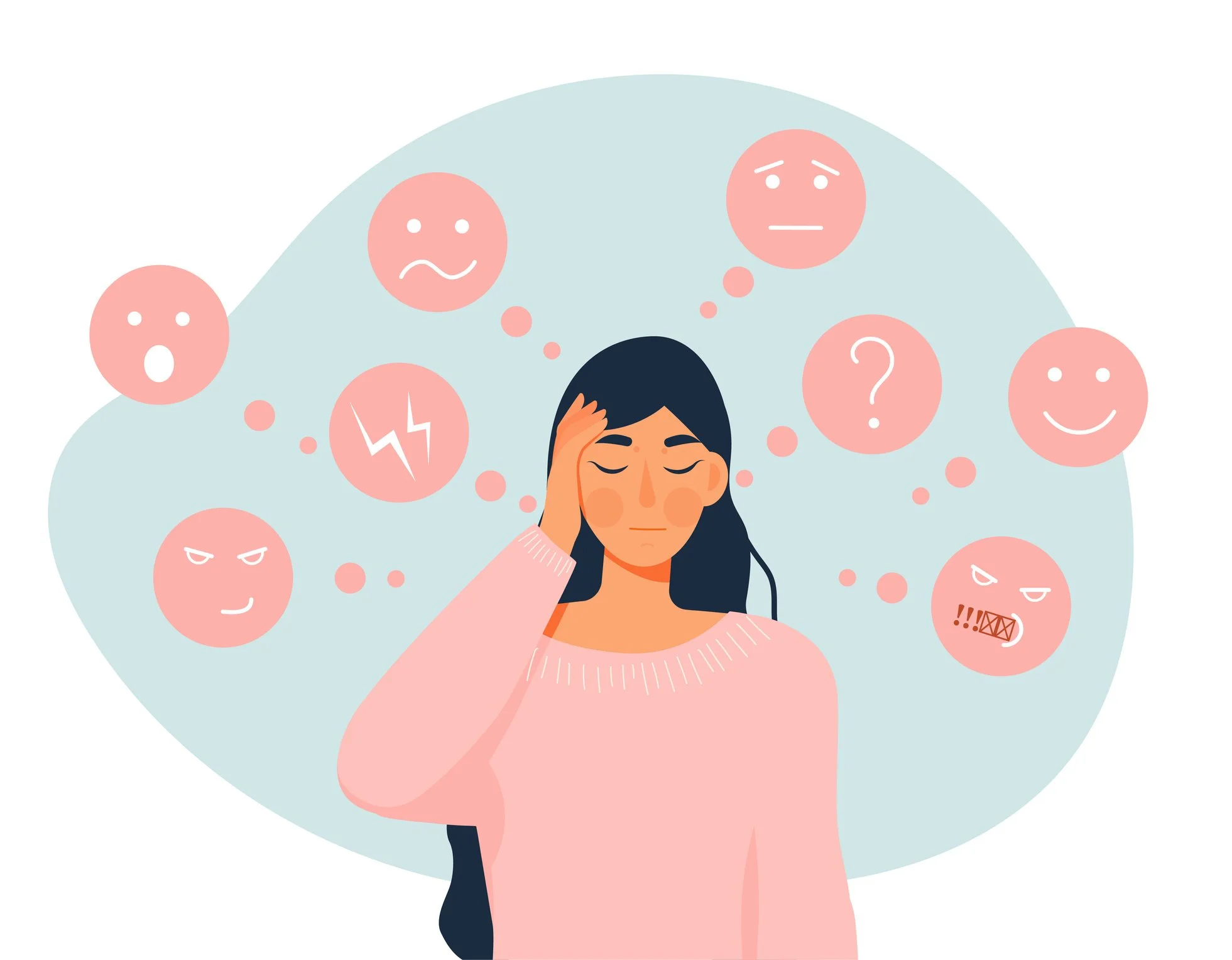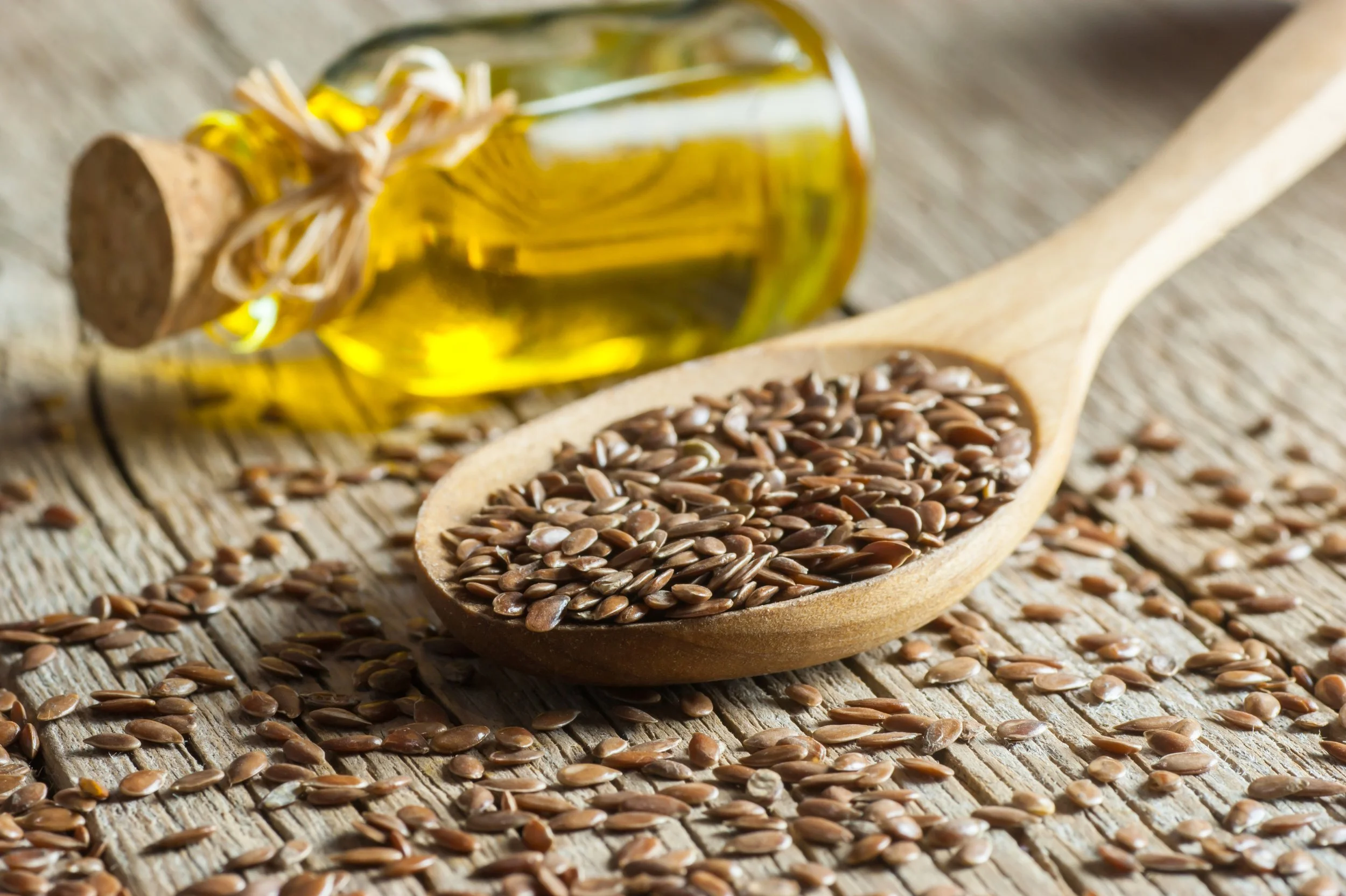The PMS-Thyroid Connection
Two scenarios involving PMS and low thyroid function I often see in clinic
Firstly, a client presents with constant low mood, fatigue, and brain fog that worsen in the week before her period. She is experiencing a form of PMS called premenstrual magnification, a temporary worsening of symptoms that is caused by an underlying health condition, which I suspect is undiagnosed and untreated low thyroid function.
Even though her GP has already tested TSH, and it falls within the ‘normal range’, through further investigation I find that she has low thyroid function. After starting thyroid hormone replacement medication, she finds her symptoms quickly improve, especially in the week before her period.
Secondly, a client with diagnosed and treated low thyroid function presents with PMS. She has excess oestrogen PMS symptoms of breast tenderness and irritability as well as the progesterone deficiency PMS symptom of premenstrual spotting.
After improving oestrogen detoxification and supporting progesterone production she finds that, not only have her PMS symptoms improved, her low thyroid function symptoms have also reduced, and her thyroid hormones are at the best levels she has had for a long time.
This is not surprising, as low thyroid function has a significant effect on period health and vice versa. It is the reason why I always investigate thyroid health when treating PMS, and why I often see an improvement in low thyroid function symptoms when treating PMS.
PMS is very common, even without having low thyroid function, but should not be considered ‘normal’ or untreatable. PMS responds quickly to the naturopathic treatment I will discuss in this blog post. I find my clients see results within the first menstrual cycle, however I do advise that you allow at least three months to experience the full benefits of this treatment.
How does low thyroid function affect your period health?
Low thyroid function can affect your period health in several ways. It can impair or even prevent ovulation by:
causing elevated prolactin levels
decreasing insulin sensitivity
depleting the cellular energy of ovarian follicles.
Ovulation is the most important phase of your menstrual cycle and is needed to produce progesterone. If you have low thyroid function, you may not ovulate regularly, causing irregular menstrual cycles that are shorter than 21 days or longer than 35 days and/or periods that last longer than 7 days. These are anovulatory cycles during which you do not produce progesterone.
Even if you do ovulate regularly, low thyroid function may cause you to not produce enough progesterone. This can cause premenstrual spotting and/or heavy periods, common symptoms of both progesterone deficiency and low thyroid function.
In a healthy ovulatory cycle, your oestrogen to progesterone ratio is balanced. In the follicular phase, from the start of your period to ovulation, oestrogen levels rise to thicken your uterine lining to prepare for implantation of a fertilised egg. In the luteal phase, from ovulation until the start of your period, progesterone is produced to prepare the uterine lining to hold a pregnancy if a fertilised egg is implanted.
If you regularly have anovulatory cycles or cycles where you do not produce enough progesterone, your oestrogen to progesterone ratio becomes imbalanced with too much oestrogen in comparison to progesterone, causing PMS.
What is PMS?
Common PMS symptoms include:
mood changes such as irritability, ‘short fuse’, teariness, anxiety, and depression
breast tenderness
premenstrual spotting
bloating and fluid retention
insomnia
acne
headaches or migraines
fatigue
brain fog
food cravings.
Symptoms usually begin 5 to 7 days before your period starts and subside during or shortly after your period finishes.
What causes PMS and why does low thyroid function make it worse?
A common misunderstanding is that oestrogen and progesterone, themselves, are what cause PMS mood symptoms. Oestrogen and progesterone are beneficial for mood. Oestrogen boosts the ‘feel good’ neurotransmitters, serotonin and dopamine. Progesterone boosts GABA, a calming neurotransmitter. Problems only arise when there is an imbalance of the oestrogen to progesterone ratio.
Whilst oestrogen is beneficial, excess oestrogen can cause PMS symptoms including irritability and breast tenderness. Excess oestrogen occurs when you have difficulty detoxifying and removing oestrogen from your body.
Low thyroid function can impair oestrogen detoxification and the resulting excess oestrogen levels further suppress thyroid function.
Oestrogen falls in the late luteal phase, the time when PMS symptoms are most often reported. If you have excess oestrogen, this fall can feel like going down a rollercoaster, exacerbating PMS symptoms.
Progesterone protects you against the fall of oestrogen, so you need to work on making enough during your luteal phase.
The problem is that progesterone is hard to make, especially when you have low thyroid function.
You need an optimal level of thyroid hormones for healthy ovulation in order to produce an optimal level of progesterone. Progesterone then helps to increase thyroid hormone production as part of a feedback loop.
Low thyroid hormone levels cause low progesterone levels which cause an even further decrease in thyroid hormone levels.
In summary, to reduce PMS you need to optimise thyroid hormone levels to ensure healthy ovulation at the same time as promoting healthy detoxification of oestrogen and maximising progesterone production.
How can I optimise my thyroid hormone levels?
Ask your naturopath or GP to order the full panel of thyroid TESTING:
To get a complete picture of your thyroid health, ask for TSH, Free T4, Free T3, reverse T3 plus thyroid antibodies, TPOAb and TgAb.
I have written a more detailed blog post on how to ensure you have the full panel or thyroid testing ordered here.
Interpret your own test results:
Aim for a TSH of less than 2, a T4 around 18 – 20, and a T3 above 5. If your thyroid levels are suboptimal, you may benefit from a dose increase of your thyroid hormone replacement. If you are not taking any thyroid hormone replacement, you may benefit from starting on a dose that will supplement the hormones your thyroid can no longer produce in optimal amounts.
Get a second opinion:
If your GP will not adjust your dose or prescribe thyroid hormone replacement, the support group Thyroid Western Australia have a list of thyroid savvy integrative GPs on their Facebook page here.
Use the thyroid western australia signs and symptoms checklist:
The checklist is on their Facebook page here and it will assist your GP in monitoring your symptoms and adjusting your thyroid hormone replacement dosage.
Treat autoimmunity:
If you have elevated levels of either or both thyroid antibodies, TPO and TgAb, this means you have the most common cause of low thyroid function, Hashimoto’s thyroiditis. This is an autoimmune condition where your immune system accidentally attacks your thyroid gland over time. You need to treat autoimmunity to optimise thyroid health by:
following a gluten and diary free diet as the proteins in both trigger autoimmunity
supporting gut health to repair intestinal permeability (leaky gut). Leaky gut is where gaps form between the cells of your intestines. This allows undigested proteins, such as casein from dairy and gliadin from gluten, as well as toxins to enter the bloodstream which activates the immune system, triggering and driving autoimmunity. Bone broth, collagen powder, and prebiotic and probiotic foods help repair leaky gut
making sure you have optimal levels of the nutrients that help to reduce autoimmunity and aid thyroid function. Ask your naturopath or GP to test for Vitamin D, selenium, zinc, iron, magnesium, folate, and Vitamin B12 levels. Your health professional can then assist you in identifying and correcting any nutrient deficiencies.
I have written a more detailed blog post about how to treat thyroid autoimmunity here.
Improve T4 to T3 ratio:
Many people have difficulty converting inactive T4 into the active form, T3. Chronic stress, fatty liver, leaky gut, and nutrient deficiencies can impair T4 to T3 conversion. Symptoms of poor T4 to T3 conversion include fatigue, low mood and brain fog.
If you suspect you may have issues with T4 to T3 conversion you can:
support liver and gut health as this is where most of the conversion of T4 to T3 takes place
consider a selenium supplement, if blood testing shows a deficiency. Selenium reduces inflammation and oxidative stress in the thyroid gland, improves T4 to T3 conversion, and reduces thyroid antibodies. The therapeutic dose of selenium is narrow, so only take up to 150mcg of selenium daily, including all other supplements you are taking.
I have written a more detailed blog post about how to improve thyroid hormone conversion here.
How can I detoxify oestrogen more effectively?
Reduce alcohol:
Alcohol significantly impairs oestrogen detoxification.
Maintain healthy intestinal bacteria:
Healthy bacteria increase oestrogen detoxification and clearance whilst unhealthy bacteria cause reabsorption of oestrogen by your body. Increase prebiotic and probiotic foods and consider taking a probiotic supplement to help maintain healthy intestinal bacteria.
Reduce exposure to xenoestrogens:
Xenoestrogens, such as plastics, pesticides, and petrochemicals, affect oestrogen detoxification and hyper-stimulate oestrogen receptors. Avoid heating foods up in plastic and drinking from disposable plastic water bottles, switch to organic fruit and vegetables to avoid pesticides, and swap skin and hair products to brands that are petrochemical free.
Increase intake of phytoestrogens:
Phytoestrogens, such as sprouts, legumes, and seeds (especially flaxseed), out compete your body’s excess oestrogens by binding to oestrogen receptors.
Improve healthy oestrogen metabolism:
Oestrogen can be metabolised into different forms by the liver. Some are more unhealthy metabolites that have been linked to increased risk of breast and other reproductive cancers. Vegetables from the brassica family, such as broccoli, cauliflower, Brussels sprouts, kale, and cabbage, contain Indole-3-Carbinol (I-3-C). I-3-C increases the healthy metabolism, detoxification, and clearance of oestrogen. Aim to have at least one cup of these vegetables daily (lightly steamed to reduce goitrogenic effects).
Improve bowel regularity:
Chronic constipation can reduce oestrogen detoxification and clearance. Exercise regularly, drink at least two litres of water daily, increase intake of prebiotic and probiotic foods, and increase dietary fibre (flaxseed, chia seeds, fruit, and vegetables) to improve bowel transit time and regularity.
Consider having a saliva hormone test:
A saliva hormone test will give you a full picture of your reproductive hormone health. Whilst this test is not covered under Medicare, saliva hormone testing is more accurate than blood testing for the reproductive hormones, oestrogen, progesterone and testosterone and can also test the adrenal hormones, cortisol and DHEA. Adrenal hormones, like thyroid hormones, can also affect reproductive hormone balance. Saliva hormone testing can also assess how well you are metabolising your oestrogen. A naturopath or integrative GP can organise a saliva hormone test for you. They can then analyse the results and develop an individualised treatment plan for you including dietary and lifestyle advice, as well as herbal and nutritional medicine, to help you achieve hormone balance.
How can I maximise my progesterone production?
Reduce alcohol:
Alcohol blocks progesterone’s calming effect on your brain.
Reduce inflammatory foods:
Lowering your intake of inflammatory foods such as sugar, gluten and dairy, improves both ovulation and the function of your progesterone receptors, increasing progesterone production.
Reduce stress:
Adrenaline blocks your progesterone receptors and progesterone is used to make another stress hormone, cortisol.
Increase your exercise:
Regular exercise helps reduce both stress and inflammation.
Consider taking magnesium:
Magnesium increases progesterone production, regulates cortisol levels, and decreases inflammation. 300mg elemental magnesium daily is a therapeutic dose. The form of magnesium you take is important. Some forms are poorly absorbed orally and can have an osmotic laxative effect. Bisglycinates and glycinate forms are better tolerated. If you don’t want to take a supplement, you can have Epsom salt (magnesium sulphate) baths or use topical sprays/oils/creams as magnesium is well absorbed through the skin also.
Consider taking a selenium supplement:
Selenium improves corpus luteum health to increase progesterone production as well as having the previously discussed thyroid health benefits. The therapeutic dose of selenium is narrow, so only take up to 150mcg of selenium daily, including amounts from all your other supplements.
Consider having a saliva hormone test:
A saliva hormone test will give you a full picture of your reproductive hormone health. Whilst this test is not covered under Medicare, saliva hormone testing is more accurate than blood testing for the reproductive hormones, oestrogen, progesterone and testosterone and can also test the adrenal hormones, cortisol and DHEA. Adrenal hormones, like thyroid hormones, can also affect reproductive hormone balance. A naturopath or an integrative GP can organise a saliva hormone test for you, analyse the results, and recommend dietary and lifestyle advice as well as any require herbal/nutrient supplementation to help you achieve hormone balance.
I hope this blog post has given you some useful tools to help you optimise your thyroid and reproductive hormone levels, so you can be rid of your PMS and low thyroid function symptoms. As I mentioned earlier, please allow at least three months to see the full benefits of this treatment. If your symptoms persist, you may benefit from consulting with a naturopath who can conduct further investigation into identifying the cause/s of your symptoms and recommend a more individualised treatment plan for you.
Want to find out how I can help you reduce your PMS and low thyroid function symptoms?
As a hormone naturopath, I can develop a personalised treatment plan to banish your PMS symptoms and support your thyroid function to help you feel calm, energised, and in control of your mood. Take a look at my PMS service page for more info…






